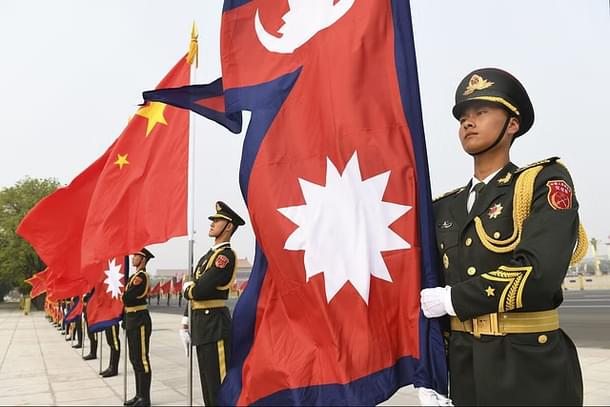Newsletters
Nepal averts a Himalayan blunder of its own, thanks to India
Anmol Jain
Jun 28, 2024, 08:41 PM | Updated 09:05 PM IST
Save & read from anywhere!
Bookmark stories for easy access on any device or the Swarajya app.
A new podcast series!

Dear Reader,
First things first — The Pluralism Project!
My colleague Diksha will be hosting this all-new podcast series by Swarajya called The Pluralism Project. In this series, she will be discussing all things Hindu-Hinduism-Hindutva with Aravindan Neelakandan based on his book 'Hindutva: Origin, Evolution, and Future'.
This one promises to be interesting as well as enriching from the word go. Neelakandan's book offers a holistic view of this theme and not a selective one. Only detailed conversations such as these can do justice to the cause and the book.
The approach to this podcast reflects the same intent wherein a chapter-by-chapter dialogue will unfold Hindutva's origins, evolution, and future.
EP 01: The Emergence Of Hindu Consciousness is out on Swarajya's app or Spotify. Do tune in!
Next, we have an intriguing piece by Jaideep Mazumdar on how Nepal marked itself safe from the Chinese Debt Trap thanks to India.
Have a good weekend!
- Anmol N Jain
Nepal averts a Himalayan blunder of its own, thanks to India

Nepal has taken a bold step by resisting China's pressure to sign the Belt & Road Initiative (BRI) implementation plan. Thanks to India's timely and arduous warnings, Nepal is now steering clear of potential pitfalls.
China and Nepal signed the BRI Framework Agreement in May 2017.
China proposed an implementation plan in early 2020—which Nepal has now refused.
Under its BRI plan, China wanted to roll out nine mega and over a dozen major BRI projects in Nepal.
India's Maneuvering: Soon after Nepal signed the agreement in 2017, India began reaching out to Nepal's economists, bureaucrats, diplomats, academia, media and civil society about the dangers of BRI like high-interest loans and potential debt traps.
Former diplomat T K Singh noted, "We launched a massive but silent campaign to educate and inform Nepal’s politicians...about the perils of the BRI."
Dahal's Refusal Despite Pressure: During the just-concluded visit of China’s Vice Minister for Foreign Affairs, Nepal’s PM Pushpa Kamal Dahal refused to sign the implementation plan despite his Foreign Ministry's push.
He echoed public sentiment, saying, "Our priority is grants, not loans. But even if we do take loans, we will not pay interest higher than what we are paying the World Bank and the ADB."
Competitive bidding is also a condition by Nepal that China isn't willing to meet.
As Nepali Congress MP Gagan Kumar Thapa put it, "People of Nepal realized that the massive BRI projects would make Nepal indebted to China in a massive way."
The skepticism is not limited to debt trap: Allegations of shoddy construction and inflated costs in existing Chinese projects, like Pokhara International Airport, have also fueled public skepticism in Nepal.
The airport, funded by a high-interest Chinese loan, turned into a huge liability with no commercial flights operating from there.
Strategic Implications: Nepal’s resistance reflects India's successful diplomatic efforts and Nepal’s cautious approach to protect its sovereignty and economy.
This decision also reflects a broader trend of countries becoming wary of Chinese debt traps.
Read the full article by Jaideep Mazumdar to understand how Nepal, thanks to India’s cautioning, marked itself safe from potential economic dependency.
Anmol N Jain is a writer, lawyer, and commentator. He posts on X at @teanmol.





